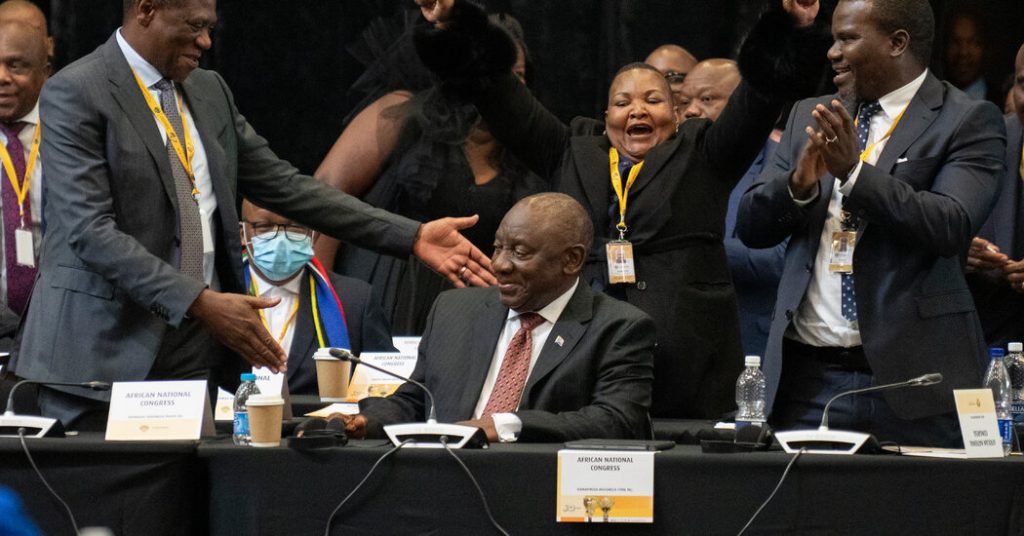President Cyril Ramaphosa of South Africa was sworn in for a second term, acknowledging the nation’s deeply divided and economically challenged state since the end of apartheid. The African National Congress (ANC) leader issued a call for unity reminiscent of Nelson Mandela, as the ANC’s electoral disappointment led to forming a coalition government with rival politicians. With one-third of Parliament joining the coalition, they aim to work together to prioritize the nation’s needs and aspirations. However, challenges loom in kick-starting the economy, addressing racial disparities, and setting aside personal and ideological differences to govern effectively.
The rocky start of the coalition government may threaten its future, as tensions and power struggles may hinder effective governance. President Ramaphosa will need to assemble a cabinet that accommodates other parties and navigate the complexities of sharing power. Economically, the country faces high unemployment, inequality, and poverty, prompting a need for solutions that may resemble previous centrist policies embraced by the ANC. The Democratic Alliance’s free-market stance may influence the coalition government’s approach, potentially leading to new initiatives such as a basic income grant to alleviate poverty.
Racial disparities are a prominent issue that may challenge the coalition government, as the ANC and Democratic Alliance hold vastly different views on transformation and economic empowerment. While the ANC advocates for policies like Black Economic Empowerment, the Democratic Alliance has proposed reforms that align with its economic philosophy. Land ownership remains a contentious issue, with the ANC pursuing a centrist policy while some advocate for seizing land from white owners. Finding a middle ground on these issues will be crucial for the coalition’s success.
Factional differences in foreign policy may present hurdles for the coalition government, as the ANC has taken stances that clash with Western interests, such as accusing Israel of genocide and supporting Russia in its invasion of Ukraine. The Democratic Alliance, on the other hand, tends to align more with Western allies like the United States and the European Union. Disputes over South Africa’s role in international institutions like BRICS and its relationships with countries like China and Russia may strain the coalition’s unity. Finding common ground on foreign policy will be essential for maintaining stability and cohesion within the government.
In conclusion, President Ramaphosa’s second term begins with the challenge of navigating a coalition government to address the country’s pressing issues. Economic revitalization, racial disparities, and foreign policy differences present formidable obstacles that require careful planning and compromise from all coalition partners. As South Africa works towards unity and progress, the success of this coalition government will depend on its ability to overcome internal divisions and work together for the betterment of the nation.


